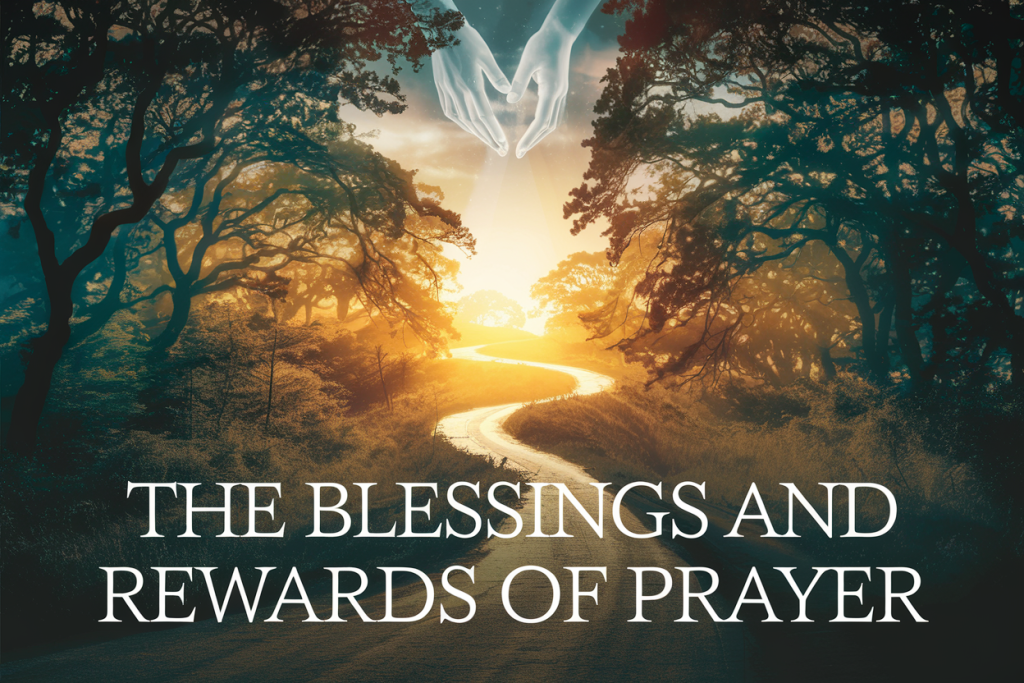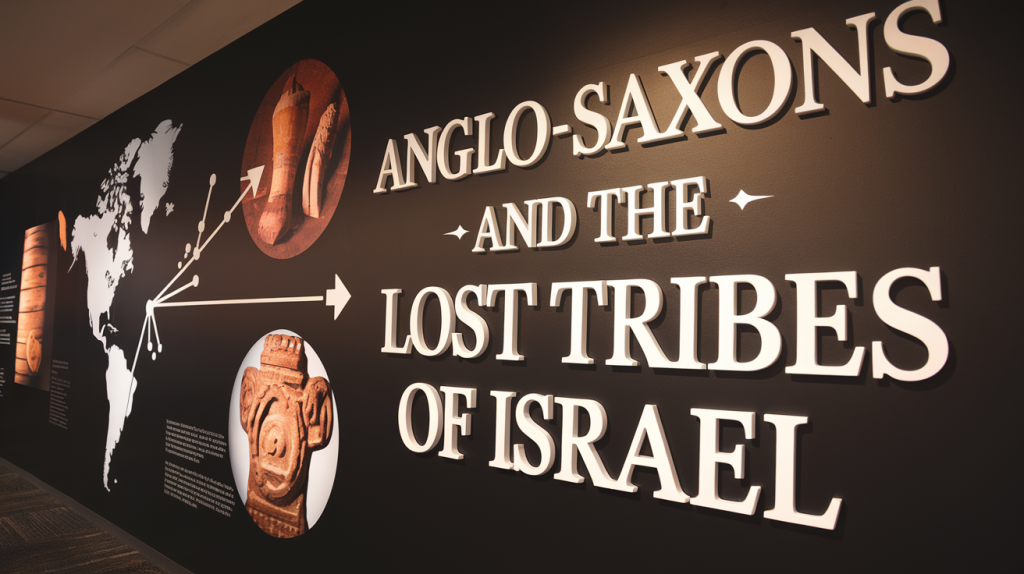Brethren, friends, praise the Lord. We stand at a crossroads. The King is at the door. This is not theory. This is not distant. The Word cries, “Prepare.” Lay the pride down. Lift the low places up. Straighten what is crooked. Smooth what is rough. Repent. Return. Receive.
We are not here to admire a prophet. We are here to obey the call that prophet thundered. “The voice of one crying in the wilderness, Prepare ye the way of the Lord, make his paths straight.” (Mark 1:3, KJV)
Praise be to God, He is gracious. He sends messengers before He moves. He warns, He woos, He waits. But He will not wait forever. Thankyou Lord for the mercy that calls us today.
Church, will we harden our necks, or will we bow our hearts? Will we excuse ourselves, or will we get into the Jordan and come up new? He must increase. We must decrease. (John 3:30)
Quick Overview
- John’s name means “Yahweh is gracious.” (Luke 1:13)
- His calling was prophesied. (Isaiah 40:3; John 1:23; Malachi 3:1; Malachi 4:5–6; Luke 1:17)
- His message was repentance with fruit. (Luke 3:7–14)
- His sign-act was baptism for remission of sins. (Mark 1:4; Matthew 3:6, 11)
- His crescendo was pointing to Jesus. “Behold the Lamb of God.” (John 1:29)
- His reward was faithfulness unto death. (Mark 6:17–28; Psalm 116:15)
- His legacy still readies hearts for Christ’s increase. (John 3:29–30; Acts 18:24–26; Acts 19:1–7)
Grace Named Him. God Sent Him.
“Thy wife Elisabeth shall bear thee a son, and thou shalt call his name John.” (Luke 1:13) The name Yochanan means “Yahweh is gracious.” Grace wrote the birth certificate. Grace wrote the assignment. Grace set the timing. Praise be to God.
Gabriel announced it. (Luke 1:13–17) Zechariah confirmed it, tongue loosed in praise. (Luke 1:60; Luke 1:63–64) He prophesied over his child, “Thou shalt go before the face of the Lord to prepare His ways.” (Luke 1:76–78)
Even in the womb, John leaped at the nearness of Jesus. (Luke 1:41) Elisabeth, filled with the Holy Ghost, called Mary’s Child “my Lord.” (Luke 1:43) The boy then “waxed strong in spirit” in the deserts until his showing to Israel. (Luke 1:80; Luke 1:66)
Friends, do you see the pattern? God prepares His messengers in hidden places so they can prepare His people in public places. Thankyou Lord for the wilderness that makes men and women useful.
The Voice In The Wilderness
He came out of the rough country with a rough garment and a clear word. Camel’s hair. Leather girdle. Locusts and wild honey. (Matthew 3:1, 4; 2 Kings 1:8)
He looked like Elijah, because he came in the spirit and power of Elijah. (Luke 1:17) He did not decorate sin. He did not flatter crowds. He preached. “Repent ye: for the kingdom of heaven is at hand.” (Matthew 3:2)
All Judea flocked to the Jordan. (Matthew 3:5–6) He called religious pride what it was. “O generation of vipers.” Bring fruit that proves your repentance. The axe is already at the root. (Luke 3:7–9) Brethren, do we tremble at that word? Or do we dodge it?
When the people asked, “What shall we do?” the prophet gave practical repentance:
- Share your extra with the one who has none. (Luke 3:11)
- Take no more than is appointed you. (Luke 3:13)
- Do violence to no man. Accuse no one falsely. Be content with your wages. (Luke 3:14)
This is holiness with work boots on. Not theory. Fruit. Honesty at work. Generosity at home. Fairness in power. Contentment in pay.
Baptism: A New Exodus At The Jordan
“John did baptize in the wilderness, and preach the baptism of repentance for the remission of sins.” (Mark 1:4) They went down into the water confessing, and they came up clean. (Matthew 3:6)
The Jordan had once been Israel’s doorway into promise. Now it became Israel’s doorway into repentance. The prophets foresaw cleansing water. (Ezekiel 36:25)
But John never confused his baptism with Christ’s baptism. Hear him: “I indeed baptize you with water unto repentance… but He shall baptize you with the Holy Ghost, and with fire.” (Matthew 3:11) Water prepares. The Spirit transforms. Fire refines.
Praise the Lord who does both. And later, in Christ, our baptism identifies us with His death, burial, and resurrection. (Romans 6:3–4)
Prophecy Fulfilled. Paths Made Straight.
John wore Isaiah 40:3 like a mantle. “I am the voice of one crying in the wilderness, Make straight the way of the Lord.” (John 1:23) He stood as the messenger whom God promised. (Malachi 3:1) He worked the Elijah assignment, turning hearts, calling to covenant, confronting kings. (Malachi 4:5–6; Luke 1:17)
Jesus Himself certified it. “If ye will receive it, this is Elias, which was for to come.” (Matthew 11:14) After the Transfiguration, the disciples understood He spoke of John. (Matthew 17:10–13) Friends, God keeps time with prophecy. Your Bible is not a puzzle. It is a plan. Praise be to God who does exactly what He says.
“Behold The Lamb Of God” – The Hand-off Of Glory
Then came the day. Jesus stepped into the river. John froze. “I have need to be baptized of Thee, and comest Thou to me?” (Matthew 3:14) Jesus answered, “Suffer it to be so now: for thus it becometh us to fulfil all righteousness.” (Matthew 3:15)
Into the water He went. Up from the water He rose. The heavens opened. The Spirit descended like a dove and rested on Him. The Father said, “This is My beloved Son, in whom I am well pleased.” (Matthew 3:16–17; John 1:33)
The next day, John lifted his finger and his voice. “Behold the Lamb of God, which taketh away the sin of the world.” (John 1:29) Passover shadows met their Substance. (Exodus 12)
Two of John’s disciples heard and followed Jesus. (John 1:35–37) That is success. Not more fans for the messenger, but more followers for the Messiah. John smiled like the friend of the Bridegroom and stepped aside. “He must increase, but I must decrease.” (John 3:29–30)
Truth In Chains. Faith In Tension.
Righteousness will rattle palaces. John told Herod the truth about his unlawful union. (Mark 6:18) Darkness hated the light and chained the preacher. (Mark 6:17–20) Alone in the cell, the wilderness prophet tasted the wilderness again.
Reports of Jesus’ gentle mercy reached him. And John, honest even in doubt, sent to ask, “Art Thou He that should come, or look we for another?” (Matthew 11:2–6; Luke 7:18–19)
Jesus did not scold. He showed. “The blind see, the lame walk, the lepers are cleansed, the deaf hear, the dead are raised, to the poor the gospel is preached.” (Luke 7:22; Isaiah 35:5–6; Isaiah 61:1) Then He added, “Blessed is he, whosoever shall not be offended in Me.” (Luke 7:23)
After the messengers left, Jesus honored John. Not a reed shaken by the wind. Not a man in soft clothing. A prophet, and more than a prophet. (Luke 7:27) “Among those that are born of women there is not a greater prophet than John the Baptist.” (Luke 7:28) Praise the Lord who defends His servants when they cannot defend themselves.
Herod’s banquet ended in blood. Manipulation danced. A head fell. (Mark 6:21–28) Precious in the sight of the Lord is the death of His saints. (Psalm 116:15) John’s race ended, but his work endured. Apollos needed fuller light. (Acts 18:24–26) Disciples at Ephesus needed the Holy Ghost. (Acts 19:1–7) The forerunner still prepared people for the fullness of Christ.
Symbols That Still Speak
- Wilderness: testing, pruning, encounter. God forms voices in hidden places. (Matthew 3:1)
- Camel’s hair and honey: holy simplicity over soft luxury. A life that rebukes vanity. (Matthew 3:4; Luke 7:25)
- Axe, fan, and fire: imminent judgment and purifying presence. Choose wheat over chaff. (Luke 3:16–17; Luke 3:9)
- Lamp and Light: John burned for a season. Jesus shines forever. (John 5:35; John 1:8–9; John 8:12)
- Jordan waters: a new exodus from sin’s Egypt. Washed and ready. (Mark 1:4; Romans 6:3–4; Ezekiel 36:25)
Brethren, which picture fits your season? Is God calling you to the desert to hear again? To the river to repent again? To the threshing floor to cast off chaff? Praise be to God, He meets us in all three.
How We Prepare The Way Today
1) Embrace ongoing repentance. Not a one-time sorry, but a Spirit-led turn that bears fruit. (Luke 3:8–14) Confess quickly. Make amends. Walk straight.
2) Point people to Jesus, not to ourselves. Be the signpost, not the destination. “Behold the Lamb of God.” (John 1:29)
3) Practice holy courage with holy compassion. Speak truth as John did to Herod. (Mark 6:18) Speak truth in love. (Ephesians 4:15)
4) Choose glad decrease. Let your platform shrink if it means His presence spreads. “He must increase.” (John 3:30)
5) Bring your doubts to Jesus. Ask your questions like John, and receive Scripture-shaped answers. (Luke 7:18–23)
6) Live simply to listen clearly. Cut the noise. Seek the desert with your Bible open. Thankyou Lord for quiet that heals.
7) Keep eternity in view. Look for and hasten the day of God by holy living and bold witness. (2 Peter 3:12) Sow. Do not faint. You will reap. (Galatians 6:9)
8) Walk straight and God will direct. “In all thy ways acknowledge Him, and He shall direct thy paths.” (Proverbs 3:6)
A Pastoral Call: Straight Paths, Now
Friends, the King is not an idea. He is Jesus, the Beloved Son, baptized in Jordan, anointed by the Spirit, the Lamb who takes away the sin of the world. (Matthew 3:16–17; John 1:29) The call is not to admire His herald. The call is to obey His herald.
Make straight the way of the Lord in your home. Clear bitterness. Forgive debtors. Tell the truth at work. Share your extra coat. (Luke 3:11–14) Return to the waters in your heart. Remember your baptism. Live the buried-and-raised life. (Romans 6:3–4) Step into the day with clean hands and a willing heart.
Brethren, praise the Lord. The wilderness will not have the last word. The prison will not have the last word. The banquet of wickedness will not have the last word. The Bridegroom’s voice will have the last word. (John 3:29) And when He speaks, graves give way, chains fall off, and the people who sat in darkness see a great light. (Isaiah 35:5–6; Isaiah 61:1)
Prayer
Father, we hear Your voice through Your servant John. Thankyou Lord for mercy that warns and grace that washes. Praise be to God for Jesus, the Lamb. Today we repent. Today we lay the axe to the root of our pride.
Today we make straight paths for Your feet. Baptize us afresh with the Holy Ghost and with fire. (Matthew 3:11) Make us lamps that burn for a season, pointing many to the Light of the world. In Jesus’ name. Amen.
Friends, will you join John’s joy? Lift your voice where God has planted you. Point to the Lamb. Prepare the way.
Call to Action: The Question That Demands an AnswerIn Acts 2:37 Peter and the Apostles were asked the question – What Shall We do? And in Acts 2:38 Peter answered, Repent, and be baptized every one of you in the name of Jesus Christ for the remission of sins, and ye shall receive the gift of the Holy Ghost. For the promise is unto you, and to your children, and to all that are afar off, even as many as the Lord our God shall call. Do you understand this? After hearing the gospel and believing, they asked what should would do. The answer hasn’t changed friend, Peter clearly gave the answer. The question for you today is, Have you receieved the Holy Spirit Since you believed? If you’re ready to take that step, or you want to learn more about what it means to be born again of water and Spirit, visit: Come, and let the Spirit make you new. |





